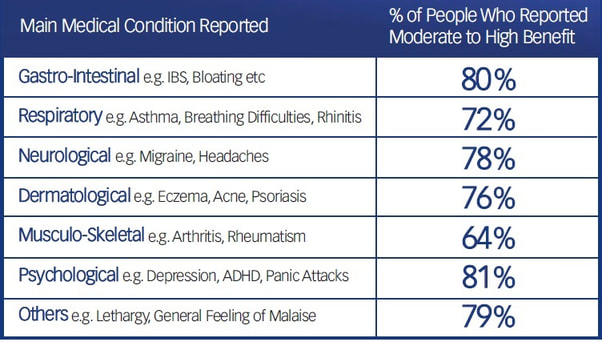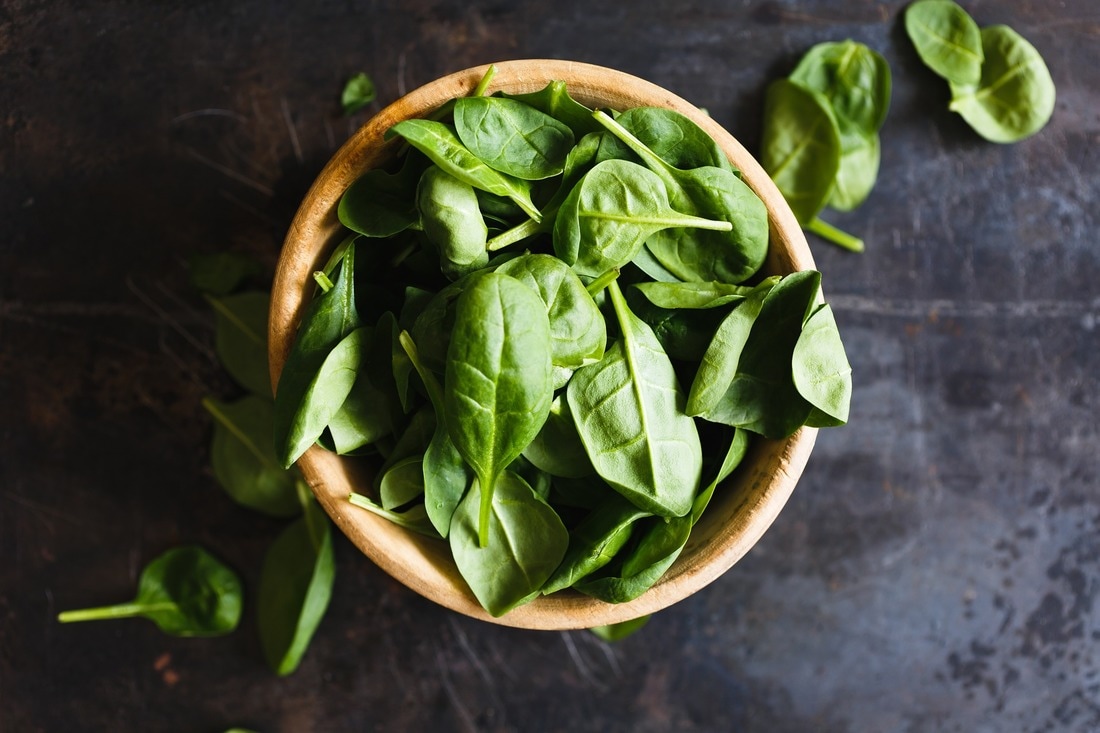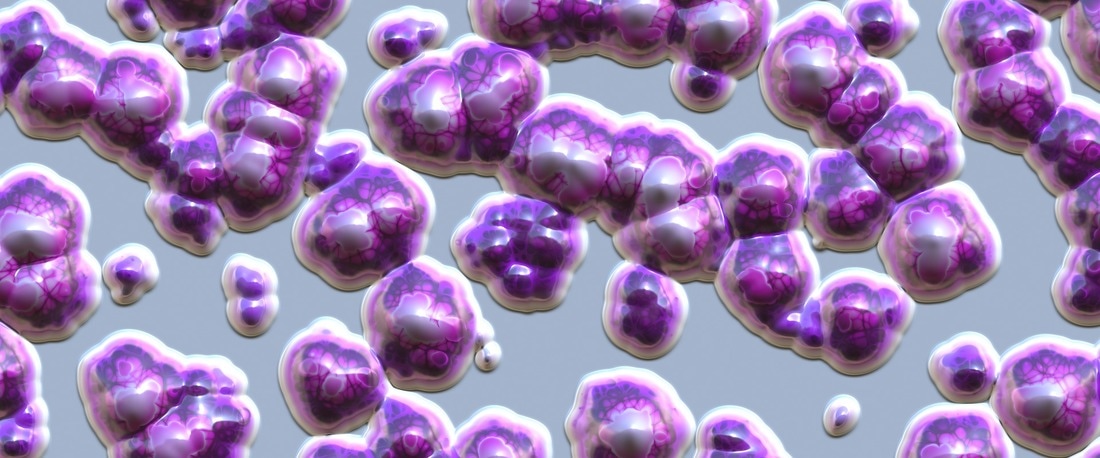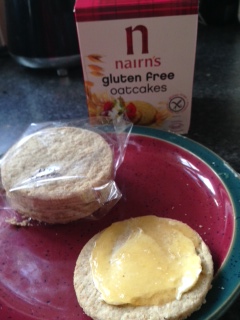|
In today's modern world the one thing that seems to escape us is sleep. But are we our own worst enemy? How many of us start the day with a large coffee or tea and continue to top up our caffeine levels throughout the day and then wonder why we can't sleep at night? Or how about spending our evening watching box sets and scrolling through our phones?!
If we want to improve our sleep there are a number of things we can do to help. 1. Reduce Caffeine. By all means start the day with a cuppa but try and avoid caffeine after lunch time as it can leave you feeling wired. Instead try herbal teas, hot water and lemon or why not try a 'Beet It' shot if you're really flat? 'Beet it' is a concentrated beetroot shot which provide nitrates which convert to nitric oxide. Studies have shown that this can increase stamina and endurance in sport and lower blood pressure. My personal favourite is green tea. Green tea has around 15mg caffeine and also contains the calming amino acid L-theanine which is often found in sleep remedies. It's a great way to reduce caffeine and take something which has many health benefits including being cancer protective. Tip: Reduce caffeine gradually over a couple of weeks and drink lots of water/herb teas to offset headaches. 2. Increase protein. Many people make the mistake of reaching for caffeine when that 3 o'clock slump comes. What we should actually be doing is balancing our blood sugars by having good quality protein throughout the day. Feeling tired? Try some nut butter on an oatcake, or carrot sticks and hummus to give you a boost. It's important to include protein in your evening meal and supper if you are struggling to sleep as we need the amino acid tryptophan for the manufacture of both serotonin and melatonin. A late snack of a handful of nuts or a small glass of almond milk or organic cows milk can help promote sleep as they provide us with tryptophan. Watch out for those sugary night time snacks as often we can wake up in the night due to a blood sugar dip. If you we want to get to sleep and stay asleep, this is a great tip to keep in mind. It's also the reason why a nightcap of your favourite tipple doesn't work as alcohol tends to spike blood glucose and as a result we can wake hungry in the night. 3. Exercise daily in daylight Another way to ensure good melatonin levels is to take a walk during the day, perhaps on your way to work or on your lunch break. Research has shown that early exposure to sunlight ensures an earlier release of melatonin at night which ensures good sleep onset. This is because daylight increases the brain's release of serotonin which lifts our mood and this converts to melatonin to prepare us for sleep as darker light triggers the release of melatonin. You can see why walking in the daylight is a great mood booster also! Just as an observation, I wonder whether the trend towards exercising in gyms with artificial light has had an affect on our circadian rhythms due to a lack of exposure to natural light! These factors also explain why we all need a good routine when it comes to sleep hygiene and circadian rhythm. Any slight change in these hormones can be very disruptive to the whole of our endocrine system. 4. Turn off that device. How many of us spend our evenings catching up on TV shows or scrolling through our phone's attempting to read the internet?! (I blame instagram!) But all that blue light before bed hugely reduces our melatonin production and sends our circadian rhythms out of whack. We can reduce our exposure to blue light by downloading f.lux to our computers. This app dims our screens to match sunlight outside. Remember to turn off the TV and put away your phone at least two hours before bed time. Why not read that book you've had sat by your bed for 6 months? Or have a relaxing bath? 5. Epsom Salts Bath Magnesium is really important in helping us to sleep as it reduces cortisol, the stress hormone, which can keep us awake at night. It also allows our muscles to relax helping us to really feel rested. Sadly around 80% of us are deficient in this vital nutrient. Having an Epsom Salts Bath is a lovely way to relax and top up your magnesium levels. Add a mug full to your bath and relax for 20 minutes to absorb the full dose. Then make sure you dab dry rather than rub as you don't want to wipe off all your magnesium. If you have trouble sleeping you may find you are deficient in this mineral. We recommend a supplement to increase your levels in the short term. Come and speak to us to find out which one would be best for you. If you are having trouble sleeping and would like to know more about any supplements which can support you e.g. Valerian, Tryptophan etc., pop into our shop at 44 St Andrew Street, Aberdeen, AB25 1JA and chat to our Nutritional Therapist, Beverley. It is not advisable to take anything without checking drug nutrient interactions first. We look forward to welcoming you.
0 Comments
Did you know that magnesium is an essential mineral for cellular health and over 300 biochemical functions in the body? As a result, deficiencies of this vital nutrient can create all kinds of health problems. Health complaints which magnesium deficiencies are commonly associated with include hormonal imbalance, behavioural disorders, mood swings, insomnia, fibromyalgia, chronic fatigue, migraine headaches, and type 2 diabetes. It is now estimated that a staggering 80% of people are deficient in this vital nutrient. What has led to widespread magnesium deficiency? The main causes of magnesium deficiency are gastrointestinal and renal losses. However, you can also lose magnesium through excessive sweating, every day movement and stress. Even if you regularly consume vast quantities of magnesium rich foods such as spinach and swiss chard, you still may not be receiving the levels of magnesium required for optimal health. This is because soil depletion has lowered the amounts of magnesium present in crops and magnesium has been stripped from processed foods. In addition, the increasing consumption of antibiotics both for medical usage and in the food chain has stripped our guts of the good bacteria necessary for proper digestion and absorption of vitamins and minerals. As the number of people with digestive disorders such as leaky gut has risen, as well as autoimmune conditions such as coeliac disease which inhibits the absorption of nutrients, this also makes it harder for people to absorb vitamins and nutrients such as magnesium. It may therefore be easier for people with these kinds of digestive complaints to absorb vitamins and minerals transdermally through the skin rather than the gut. BetterYou have created a great range of high quality magnesium oil sprays and bath salts which are great for people with these kinds of issues. What are the benefits of supplementing with magnesium? From regulating the heartbeat rhythms to helping neurotransmitter functions, magnesium is a vital nutrient for human health. There are numerous studies which have pointed to the benefits of supplementing with magnesium in conditions such as migraine, type 2 diabetes, muscle aches, depression and more. For example, a study in the Expert Review of Neurotherapeutics found that taking 300 milligrams of magnesium twice a day reduced the frequency of migraine headaches. Whilst another study in MMW Fortschr Med has found that people under mental and physical stress can benefit from a daily intake of magnesium to prevent symptoms of deficiency such as anxiety, depression, restlessness and insomnia. Magnesium can also aid digestion, and relieve constipation as it relaxes the muscles in the digestive tract. How do I know if I am deficient? If you are experiencing symptoms such as muscle aches or spasms, poor digestion, anxiety, headaches, a twitchy eye or insomnia it may be a sign that your levels of this mineral are low. Of course there may be other reasons for this, which is why if you are really concerned it is always best to speak with a Nutritional Therapist who will be able to assess your case and perhaps make additional or more appropriate suggestions. Magnesium on its own is not always a miracle cure! Particularly if there are other gastrointestinal issues or food intolerances. Another sign that you are low might be if you regularly crave chocolate which contains magnesium. As it has become the typical punchline that women crave chocolate around menstruation, it has been suggested that this is because chocolate contains magnesium which alleviates some of the symptoms associated with PMS such as pain and mood swings. However, dark chocolate contains far more magnesium than milk chocolate, so if you are after some magnesium rich chocolate it would be a dark chocolate which contains at least 70% cocoa solid (and preferably raw!) that I would go for! If you are interested in learning more about Magnesium supplementation, please ask to speak to our clinically trained Nutritional Therapist Beverley Sarstedt who will be able to advise you and offer suggestions on what is best in your individual case. References: Christina Sun-Edelstein and Alexander Mauskop. “Role of magnesium in the pathogenesis and treatment of migraine.” Expert Review Of Neurotherapeutics Vol. 9 , Iss. 3,2009 E. Wienecke and C. Nolden. “Long-term HRV analysis shows stress reduction by magnesium intake”. MMW Fortschr Med. 2016 Dec;158(Suppl 6):12-16. Epub 2016 Dec 8. Last week we looked at the power of probiotics and the fact that we get our good bacteria from our mother when we are born. As the baby travels down the vaginal canal the baby is covered in secretions which contain their mother's flora. This is then swallowed by the baby and that bacteria colonizes their gut and forms the beginning of their immune system. This is why "seeding" (taking gauze soaked in this fluid and wiping it on the babies face) is becoming increasingly discussed as a way of getting that first colony into the baby after a C-section.
Think you don't need to take one? Let's look at some of the things that compromise gut flora. - Birth Control (Most women are on this prior to falling pregnant.) -Antibiotics (many women suffer with UTI's during pregnancy). -Antacids (how many women do you know who slept with rennies by the bed and spent the last trimester knocking back the gaviscon?) -Pesticides (Unless we eat an entirely organic diet, most of us are exposed to these through the diet). -Household Cleaning products (One word....Nesting!!) -The list goes on! Still not convinced? Well let's look at the benefits of taking probiotics for you and your baby both in vitro and beyond. A 2010 Scandinavian study showed that probiotics significantly reduced the risk of Gestational Diabetes and that coupled with proper nutritional support reduced the risk of foetal overgrowth associated with it. This of course has the knock on effect of reducing the need for medical intervention during delivery. A further study has shown that in addition to reducing hypertension (high blood pressure) and inflammation, intake of probiotics also significantly reduces the risk of pre-eclampsia and spontaneous preterm delivery. Those who took probiotics daily had the lowest risk factors when compared with those who consumed them only weekly or monthly. Taking probiotics prior to giving birth and then giving them to the infant for the following 6 months has been shown to reduce the incidence of eczema. The Swansea Baby Trial supported these results. Babies given Lab4b (the probiotic used in the Proven range) were 57% less likely to develop allergic eczema than those receiving the dummy product. It also showed that children whose mothers had probiotics in the last trimester along with taking them for the following 6 months were 44% less likely to develop allergic reaction to the common allergens including pollen, cow’s milk, egg, and house dust mite. The Swansea study also concluded that probiotics are safe and that taking them had no adverse effects to mum or baby. A Study from MIT has also showed that supplementation with probiotics increases the production of love hormone oxytocin. This in turn leads to increased immunity with the infant exhibiting robust skin and mucosae, rapid wound healing and resistance to infection. If you would like more information or to find out which probiotic is the right one for you pop in and see us. Nourishing Insights, 44 St Andrew Street, Aberdeen, AB25 1JA. References: https://www.umcg.nl/EN/corporate/News/Paginas/Antacid-use-dramatically-reduces-healthy-gut-microbial-flora.aspx http://lab4probiotics.co.uk/the-swansea-safety-in-newborns-study/index.html http://lab4probiotics.co.uk/the-swansea-baby-trial/index.html R.Luoto et al. (2010) Impact of maternal probiotic-supplemented dietary counselling on pregnancy outcome and prenatal and postnatal growth: a double-blind, placebo-controlled study. British Journal of Nutrition. 103 p. 1792-1799. A. Brantsaeter et al. (2011) Intake of Probiotic Food and Risk of Preeclampsia in Primiparous Women: The Norwegian Mother and Child Cohort Study. American Journal of Epidemiology. 174 (7) p.807-815 K. Kukkonen et al. (2007) Probiotics and prebiotic galacto-oligosaccharides in the prevention of allergic diseases: a randomized, double-blind, placebo-controlled trial. Journal of Allergy and Clinical Immunology. 119(1) 192-198. S.E. Erdman and T.Poutahidis. (2014) Probiotic ‘glow of health’: it’s more than skin deep. Beneficial Microbes. 5(2) p. 109-119. M.Murray &J.Pizzorno (2012) The Encyclopedia of Natural Medicine. Atria. New York. Probiotics seem to be something that everyone is talking about these days, but what exactly are they? What do they do? Where do they come from? How do I know if I need one?
'Probiotic' literally means 'for life'. More often are defined as being "viable microorganisms that have a beneficial effect in the prevention and treatment of specific pathologic conditions when they are ingested". Basically they are the good bacteria that should be found in your gut. Did you know that approximately 85% of your immune system is found in the gut? This is because it is the job of these good bacteria to be the gatekeepers to our body. They are our first defence against foreign bodies, preventing colonization by viral and bacterial pathogens. Wondering where you got your good bacteria from in the first place? Your mum! During a vaginal delivery the baby is covered in secretions which contain it's mothers bacteria. The mother passes her gut flora on to her baby and this in turn colonizes their gut. From that day forward we are constantly changing our gut flora depending on what we ingest. We are exposed to coughs, colds, travel, different foods, medications and all of these impact our gut ratio between good and bad bacteria. Sat there thinking well my granny hasn't taken a probiotic and she never gets ill at 96! The truth is that she has probably had her fair share of 'probiotics' but they just didn't call them that then. Traditionally fermented foods like sauerkraut, kefir, kombucha, raw yoghurt and even beer were all sources of good bacteria. In the days before fridges and supermarkets, fermentation was a way of preserving produce to survive long winters. These days everything goes in the fridge, crops are sprayed with pesticides which just like the antibiotics you get from the doctors are not selective about whether the bacteria they are killing is good or bad. Most supermarket products have also been pasteurised to extend shelf life and prevent outbreaks of harmful bacteria. This means that the good bacteria in traditionally fermented foods is killed along with any bad that may have been present. The good news is that there is now a move back towards traditional probiotics with kefir, kombucha, and sauerkraut gaining in popularity. Thinking about stocking up on those yoghurt drinks from the supermarket? Think again! Did you know that many of them have more sugar per 100g than fizzy pop? One of the easiest ways to up your good bacteria is to take a probiotic supplement many of which also contain prebiotics (food not absorbed by the host that supports the growth of good bacteria). So do you need a probiotic? The reality is that most of us should take a probiotic supplement even just in the short term. Why? The vast majority of us have at some point done at least one of the following all of which negatively effect your gut flora: taken an antibiotic; suffered from colds and viruses; have IBS or IBD; taken the contraceptive pill; taken steroids; travelled abroad; suffer from or have a family history of auto immune conditions e.g. under-active thyroid, diabetes, lupus, psoriasis, etc; or allergenic conditions e.g. food allergies and excema. There is a wealth of research out there which clearly demonstrates the huge role that probiotics have in supporting our immune system and preventing disease. A recent study examining the role of probiotics in the reduction of diabetes states that probiotics contribute to a reduction in inflammatory response and oxidative stress. This leads to increased insulin sensitivity and a reduction in the autoimmune response. Increasingly well known is the fact that our gut micro biome influences our mental health with neurotransmitters manufactured in the gut including serotonin and GABA. Allergenic diseases have increased over the last 40 years in industrialized nations but NOT in the developing world. Put simply we are just too clean, our homes and farms are sprayed to within an inch of their lives, we eat processed foods and we aren't exposed to the diseases we once were. All of this impacts on our gut flora and prevents the normal responses to allergens from developing properly leading to an increase in disease. Children with food allergies have been found to have an imbalance between good bacteria and potentially harmful ones. The same has been observed in a study of children with atopic eczema. So which one should I take? Well firstly you need to find a probiotic which is scientifically proven to survive gut acidity. Then the answer is it really depends on you and what your individual needs are. If you are looking to support mental health a probiotic with bacterial strains proven to support depression and anxiety would be a good start e.g. lactobacillus acidophilus Rosell-52 and bifidobacterium long rosell 175 found in Optibac for everyday. However, there are a variety of ranges designed specifically for different needs: travel abroad, when you're taking antibiotics, pregnancy, breastfed babies, bottlefed babies, managing cholesterol levels, one for women for targeting the intimate flora, the list goes on. Still not sure, or just want to know more? Pop into the shop and have a chat with us. References: R. Rolfe. (2000) The Role of Probiotic Cultures in the Control of Gastrointestinal Health. Journal of Nutrition. 130 p.3965-4025 M.Geuking et al. (2014) The interplay between the gut microbiota and the immune system. Gut Microbes 5(3) p. 411-418 P. Kirjavaninen et al. (2001) Characterizing the composition of intestinal microflora as a prospective treatment target in infant allergic disease. FEMS Immunology & Medical Microbiology. 32 (1) p. 1-7 B. Bjorksten et al. (1999) The intestinal microflora in allergic Estonian and Swedish 2-year-old children. Journal of the British Society for Allergy and Clinical Immunology. 29(3) p 342-346. A.Gomes et al. (2014) Gut microbiota, probiotics and diabetes. Nutrition Journal. 13(60) http://www.optibacprobiotics.co.uk/faq/why-consider-optibac-probiotics-over-probiotic-yoghurt-drinks  Available at Nourishing Insights clinic and shop at 44 St Andrew Street, Aberdeen or can be done at home. Food Intolerance testing can help a variety of conditions. If you have been suffering for some time and are getting by on endless rounds of pills which only offer symptomatic relief at best, food intolerances may be behind your continued health challenges. This test is suitable for children from 2 years old and involves a simple pin prick test. I offer a free 20 min consultation by phone to discuss your needs further and will advise as appropriate for each case. Test results are back within 10 working days. For small children our preferred approach is the gold standard which is an elimination diet. Ultimately the focus with our service is about getting to individual route cause and working on gut healing so as to restore immune tolerance and introduce most foods back where possible. Intolerance versus allergy. The test involves a simple pin prick test which goes off to a UK registered Medical Laboratory. This test is an IgG test which looks at your Immunoglobulin G response to particluar foods. There is much confusion and misinformation about food intolerances and what they actually are. An 'Allergy' is where you have an instant reaction to something as is often the case with common allergies to foods such as nuts and shellfish or even a bee sting. This can be a mild allergic response to a severe and sometimes even life threatening reaction where the person can go into anaphylactic shock. For these stronger reactions, it is necessary to carry a preventive medicine such as an epipen and serious care needs to be taken in managing this condition. The immunoglobulin involved in this case is IgE and testing for this is often done via the NHS. However we can now offer allergy testing also at our clinic if this is required. IgE testing at our clinic is also a pin prick blood test and the test offers both food and environmental allergens. An 'intolerance' on the other hand, involves an IgG response and the challenge with this is that it is often less obvious to the person experiencing it. Many people live for years without even considering that they may have one. That said, many of us know exactly when we've eaten something that our body doesn't like and a reaction can be fairly quick following a meal and can be quite severe. What is interesting is that when the results of a test come back, they often validate what the person was expecting and are thus very reassuring. One of the challenges is that it can take up to 72 hours to experience an IgG reaction which means you could for example, eat a potato on a saturday and have migraine on a monday and not join the dots between the two. So if you are one of those people who are not making the connection with food triggers, this could be why. The delayed reaction also makes it slightly trickier and time consuming when doing diary taking and elimination diets, although I also offer this approach and it works really well for many. It is of course possible to have both allergies and intolerances. For example you may have an 'allergy' to latex or nuts and a 'food intolerance' for dairy and yeast. There is also the option to test for both IgG and IgE at the same time if this is preferable. Nutritional protocol. Of course, there are other issues running alongside intolerances and the protocol for dealing with them involves more than just removal of identified triggers! This is where a Registered Nutritional Therapist comes in as I can ensure that you are well supported for total nutrient intake. I may also recommend further testing either via your GP or privately to identify other culprits. Ultimately, I will work with you to achieve balance and wellness across all body systems and tackling all of your health challenges in turn. We will also work together to heal the gut at cellular level and support digestive enzymes, stomach acidity and other fundamental aspects of optimal digestive health.This way, you will be able to re-introduce some foods as you heal over time and build back immune tolerance. Nutritional Therapy deals with the root cause of these problems. A food intolerance may indeed be causing your migraine. However, the ultimate cause is the reason for the food intolerance in the first place. This takes us to 'leaky gut' or intestinal permeability or perhaps you have low stomach acid. There are multiple factors that can set us up for developing a food intolerance from chronic stress to gut infections or drug medications. Food intolerance is therefore a symptom of an underlying weakness in your intestinal integrity. If this is not corrected, further problems will ensue longer term. An IgG test can only be carried out as a blood test but the lab we use offer a simple pin pick blood which can be done at home. Weight loss as a side effect not as a goal! One of the pleasant side effects of Nutritional therapy is that people usually lose weight. All recommendations involve following a 'clean' diet and the wonderful thing is that the appropriate support is given to be able to achieve this whatever your starting point. Something to consider regarding other weight loss approaches is that you can actually lose weight without eating healthy 'clean' foods. One example of this is just eating less. If we eat less 'junk' then of course we may lose weight but if we continue to eat foods that do not provide the right information to our cells, we are in big trouble! Add to this the fact that many of the foods we are told are 'healthy' are not. Weight loss should never be your primary goal to achieve wellness. It should follow naturally from following a health promoting lifestyle and appropriate foods for you. In addition weight gain can be an unpleasant side effect of unidentified food intolerance due to inflammation and fluid retention. If you have suddenly gained weight out of the blue, ask yourself if you have recently introduced a new routine example protein shakes at breakfast containing dairy of soya based protein powders as if you are reacting to either the dairy or the soya you can gain weight or really struggle to lose any. IBS, pain and autoimmune conditions, skin conditions. The commonest reasons for seeking food intolerance testing are the above and the results can be life changing for those who benefit. Double blind studies have shown a clear link between food intolerance and IBS with one study demonstrating a third of participants having at least one if not multiple food intolerances. In addition some sufferers of IBS benefit from following a low FODMAP's approach for a period of time, more in our IBS blog. Other very common conditions that are affected by food intolerance are Endometriosis and Eczema, asthma and hay fever, joint pain, migraine and mental health conditions. Interestingly, if you have an autoimmune condition, for example underactive thyroid or psoriasis, did you know that you are also at risk of developing other autoimmune conditions if you don't take steps to support your immune system now? I follow a Functional Medicine approach to my work as a Nutritional Therapist and autoimmune disease is an area of specialism for me. A Nutritional therapy consultation will help you get to the root of your particular health challenges. A food intolerance test can be done as a stand alone test without a full consultation as above, but a half hour consultation will always be completed to discuss your heath needs before the test is completed. Advice will also be given as to whether testing is appropriate or not. To make an appointment and to discuss your health challenges further, please phone 01224 969637 or contact us here I offer telephone and skype/zoom appointments for those at a distance. (Check with your insurance provider to see if Nutritional Therapy is covered) Prices can be found on our testing page. #Aberdeen #Nutritionist #Functional Medicine #Food intolerance I made an appointment with Beverley as I was struggling with underactive thyroid and had just been diagnosed with Polycystic ovary Syndrome. I didn't fully understand the link between autoimmune disease and food intolerance although I had suffered IBS for years, so it was all making sense! I was keen to deal with my PCOS through diet and supplements instead of drugs and am delighted in my success. Through eating the right foods for me, and balancing my blood sugar I was able to lose 2 stone and sort my hormones out. The result of all this (which I have to say wasn't as hard as I had anticipated!), is that I am now expecting my first baby! Highly recommend Beverley and Nutritional Therapy which really is life changing. Hannah, Aberdeenshire.  Do you spend summer a snivelling mess constantly searching for a hankie? Hay fever is a sure fire sign for many that summer is on it's way, that first tell tale sneeze in late spring as everything starts to bloom. Yup it's tissue time again. If like me you can't leave the house without a packet of tissues at this time of year our salvation may have been found....Probiotics! Researchers at Vanderbilt University School of Medicine have reviewed 23 studies analysing the most up to date data on the use of probiotics in the treatment of hay fever. They concluded that in the majority of studies patients symptoms improved significantly by using probiotic compared with those who don't. So there you have it, teeny tiny microorganisms are the answer we've been looking for! There are a number of different options available and we usually advise on particular strains of bacteria based on other health challenges. Other foods that can worsen symptoms are caffeine and alcohol and foods that contain histamine e.g., red wine, cheese, chocolate, and tomatoes. Wheat based foods can add to the inflammation for some and dairy products can increase mucus production as can sugar and excess starchy foods. Then there are those foods which are individual to you and these can be tested for via IgG Food Intolerance testing. Foods that support hayfever sufferers are those that reduce inflammation. Oily fish which increases our omega 3 fatty acids is anti-inflammatory. We can also supplement with this especially over the season. Incorporate ginger, rosemary and thyme into your cooking. Make ginger teas from fresh ginger and nettle. These foods will help counteract a runny nose and itchiness. Raw honey bought from local farms and bee keepers has been spoken about for a while and many have found taking a spoonful a day to be extremely helpful during pollen season. Supplementing vitamin C is helpful as it’s a natural anti-histamine. Most important is ensuring a rainbow diet with lots of flavonoids and a good range of nutrients. Another natural anti-histamine is quercetin found in foods such as red onion, peppers and citrus. This can be supplemented but if you are on medication, please contact a Nutritional therapist as it does have some drug nutrient interactions. Tumeric is another favourite of ours for hay fever support as research published in the journal Molecular Nutrition and food research 2008 demonstrated that turmeric prevented mast cells from releasing histamine. Oil of oregano has been shown in animal studies to prevent histamine release due to its component rosemarinic acid. Two of our favourite products for hay fever prevention combine the above to take best advantage of the latest science. These are quercetin plus and Epigenar Curcumin oregano quercetin complex. Whichever you go for, we hope that you will soon be able to leave your hankies at home! Welcome to the 21 day oatcake challenge!! Many people ask me for simple, stress free hints and tips that involve the least effort but have the maximum impact.... so here we have it 'the 21 day oatcake challenge.'. All you have to do is to replace every slice of bread you would normally consume each day with an oatcakes for 21 days and the benefits to your health as well as your waistline will be well worth the tiny bit of effort involved. Of course, there are lots of oatcakes out there but I'd like you to choose the Nairn's oatcakes or Paterson's. They don't have to have the words Gluten Free but they do have to be wheat free to be beneficial to your health. (Some of the triangular, slightly larger versions contain wheat so please avoid) Oats are naturally Gluten free but in order to carry that on the label they have to be manufactured in a part of the factory away from any gluten for the benefit of people with a serious allergy, so we don't have to worry about that unless we know we are one of those people. You will notice that Nairn's also make sweet biscuits. If you are continuing to eat sweet biscuits during this challenge, then please replace with these ones. However, we would recommend you take the opportunity to reduce sugar and try plain oatcakes with a savoury or nut topping instead. This will keep you going longer, so you don't feel hungry and will maintain energy levels which is what we all need these days! Health benefits... Oats are packed with both soluble and insoluble fibre which means they help to promote healthy digestion and also help us to feel fuller for longer. They contain a particular type of fibre known as beta-glucan which is known to reduce the bad type of cholesterol in our blood reducing our risk of coronary heart disease. Studies have also shown a link between consumption of oats and reduced colorectal cancer due to the fibre content. Oatcakes also have a high mineral content especially manganese and phosphorous and are excellent for maintaining our energy levels. They also have a low glycaemic index which makes them helpful in managing blood glucose, especially if topped with a good quality protein/fat such as a nut butter. Why ditch the wheat? For many of us wheat based breads have become problematic. Complaints around bloating, IBS, eczema, depression and tiredness to name but a few have all been linked in many scientific studies to the consumption of wheat. When you consider that the wheat we eat now in our supermarket breads is a from a hybridized grains with 30% more gluten than our grandparents were exposed to, then you can see why so many people are removing wheat and or gluten from their diets, However, there are many other reasons for these types of symptoms and following this challenge does not replace an appointment with a nutritional therapist who can help you get to the root of your particular health challenges and may refer you for further testing via your GP. At this stage just replacing a poor quality bread with limited nutrient value and some potential disbenefits with something more nutrient dense and with a good source of both soluble and insoluble fibre can be a huge asset for maintaining health. There are of course many alternatives to wheat breads such as rye, spelt, amaranth and quinoa. Look out for these breads in theBiona range in the supermarket However, for now, let's keep it simple. Oatcakes are delicious and portable. You can carry them in your handbag/briefcase to work or out for lunch. They are fab with soups so you are not tempted to pick up that bread. You can add any topping you like as you would a sandwich or have along with a bag of salad (NOT one of those awful pasta salads but a packet of greens or egg or other protein such as salmon in with your salad) Ideally make your salad at home with lots of veg and some protein, either meats, fish or veggy source such as kidney beans. For snacking, they are ideal and can be enjoyed with some nut butters (check out almond, cashew and pumpkinseed butters or some pate or humus. You will find that you only need one and are ready for action with sustained energy! Similarly, they are great as a bedtime snack to keep you going through the night. Check out some nut butters at your health food shops. For example, Meridian Almond Butter. Now also available in Supermarkets. For breakfast you could replace that toast habit with oatcakes and an egg based breaky, or try oats as a porridge topped with nuts and seeds and a few berries. The great portability of oatcakes in the individual packets means that if you are in a rush, just make a boiled egg the night before (or as you take your shower!) and take your egg to work with some oatcakes to have when you get there. (Far superior to most cereals on the market!) We would love it if you got your family, friends, work colleagues to join you in this 21 day oatcake challenge. Many people find changing their diet a little daunting, but this is a fabulous way to make such a huge benefit to your health in a short time.. You will be surprised at how well you do. Bon appetit!! If you would like more ideas to support your health goals make sure you sign up to our Newsletter! |
Amazon Associates DisclosureNourishing Insights is a participant in the Amazon EU Associates Programme, an affiliate advertising programme designed to provide a means for sites to earn advertising fees by advertising and linking to Amazon.co.uk. Archives
December 2023
|
WHAT OUR CLIENTS ARE SAYING“I did Nutritional Therapy with Beverley and it was life changing. I highly recommend it!” Allison Blakely (Glasgow)
|
Contact Us |








